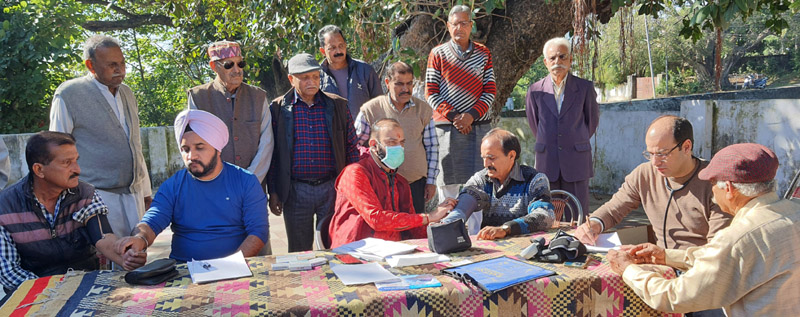Excelsior Correspondent
Jammu, 20 Nov: Dr Sushil Sharma, Head of the Department of Cardiology at the GMCH, augmented his efforts to educate the public about the negative effects of cardiovascular diseases due to deteriorating air quality today by holding a day-long awareness cum screening camp at Raipur Domana.
During his conversation with the patients, Dr. Sushil noted that over the last decade, a growing body of epidemiological and clinical evidence has increased concern about the possible negative effects of ambient air pollution on health and its link to heart disease and stroke. Of special interest are several environmental air pollutants that include carbon monoxide, oxides of nitrogen, sulfur dioxide, ozone, lead, and particulate matter (“thoracic particles” [PM10] <10 ?m in aerodynamic diameter, “fine particles” [PM2.5] <2.5 ?m, and “coarse particles” [PM10 to 2.5]).
These pollutants are associated with increased hospitalization and mortality due to cardiovascular disease, especially in persons with congestive heart failure, frequent arrhythmias, or both. The well-established causal associations between active and passive smoking with heart disease and stroke support the plausibility of an adverse effect of PM on the cardiovascular system, Dr Sharma said.
He further added that air pollution may accelerate the development of coronary atherosclerosis and worsen its sequel. Some of these effects may occur over time, as with acceleration of the progression of atherosclerosis, or rather abruptly, as with the triggering of an arrhythmia or myocardial infarction by acute inflammatory responses, altered platelet adhesiveness, or perhaps vascular endothelial dysfunction. The putative biological mechanisms linking air pollution to heart disease involve direct effects of pollutants on the cardiovascular system, blood, and lung receptors, and/or indirect effects mediated through pulmonary oxidative stress and inflammatory responses.
“Direct effects may occur via agents that readily cross the pulmonary epithelium into the circulation. Short-term exposure can increase the risk of heart attack, stroke, arrhythmias and heart failure in susceptible people, such as the elderly or those with pre-existing medical conditions. The risk of death is greater from long-term exposure, ” he said.
Others who were part of this camp include Dr Dhaneshwer kapoor and Dr Anitipal Singh . Paramedics and Volunteers includes Kamal Sharma , Raghav Rajput , Ranjeet Singh ,Rajkumar , Akshay kumar , Sahil Sharma, Sandeep Pal and Amandeep Singh


